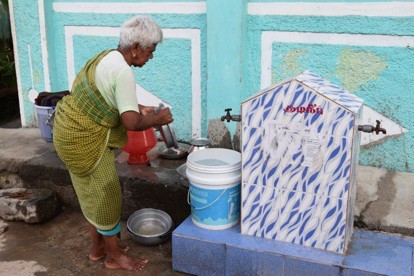
Although access to safe drinking water and improved sanitation are recognized as human rights, today about 2.5 billion people lack proper sanitation, and over 780 million people are without access to clean water. The great majority is located in sub-‐Saharan Africa and South Asia. For the governments of those countries, the dilemma of providing adequate supply of clean water and sanitation is one of the crucial public policy problems for development.
During my Water Policy & Governance course at the Lee Kuan Yew School of Public Policy (LKYSPP), I had the pleasure to read papers and have interesting in-‐class discussions on these major challenges. However, if there was something I knew Iwanted do over my summer, it was to check the reality by myself by visiting one of those countries, and possibility to gain a deeper knowledge around the policies that local and national governments are implementing to address the issue of universal access to water and sanitation.
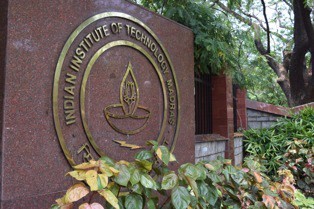
With my internship at the Indian Institute of Technology Madras (IIT-‐M), not only I had the chance to witness the reality of India, one of the countries where the water and sanitation dilemmas are most serious, but also to study the national policies of four South Asian countries (Bangladesh, India, Nepal, Pakistan) and seven Sub-‐Saharian African countries (Ethiopia, Kenya, Madagascar, Malawi, Nigeria, Tanzania and Uganda), as well as the state-‐level policies of India and Pakistan. In fact, thanks to the help of a fellow Master’s student from Chennai, I managed to get in touch with the Department of Management Studies of IIT-‐M, which is currently undertaking a systematic review on Water, Sanitation and Hygiene (WASH) policies of these eleven countries. The major objective of the research is to investigate whether national and state level policies of these countries have incorporated a life-‐cycle approach (LCA) in their WASH policies, in order to reduce discrimination and promote the delivery of sustainable, adequate and equitable WASH services.
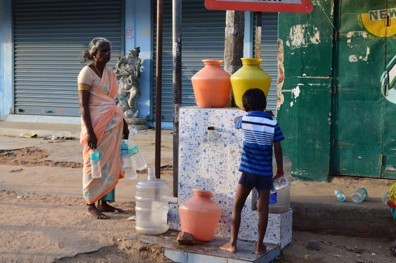
After having landed in Chennai, it took short time to realise the difference in water and sanitation service delivery between countries such as the one I am from, Italy, or the one I was living, Singapore, and my new home for a couple of months, India. Tap water was strictly not drinkable, and public toilets lacked the minimum hygienic requirements, as well as soap and toilet paper. And lucky enough I do not have any disability, because it would have been almost impossible to find toilet facilities accessible for disabled people. In many areas of Chennai, as well as in rural villages and small towns, many of the households do not have private connections and it is common to see women in the street washing their cutleries, or washing themself or their children in public fountains, which they would not leave without having collected at least a couple of big jars of water to bring home. All of these simple observations were just the confirmation that the work I was doing at IIT-‐M was very much needed.
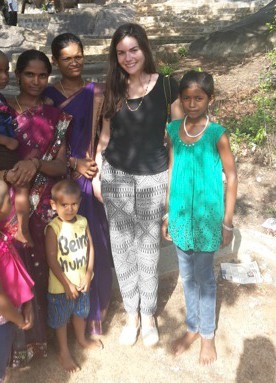
During my internship I had the chance to get involved in most of the activities of the research team, and in pretty much in all the phases of the research work. First of all, the systematic review – a new research methodology that I had the chance to learn and apply here for the first time – requires a rigorous coding of the policy documents, following a structured and systematic process of extracting and coding data. Here, I could be helpful in coding policy documents of some African states that required specific French language skills. Then, after having entered the data in our databases, I was also extensively involved in the data analysis by making use the use of descriptive statistics - that I had learnt during the previous semester at LKYSPP to summarize important information about the study variables, with the ultimate goal of summarizing the major findings. Additionally, I also attended a qualitative comparative analysis (QCA) workshop where, together with the research team, I could learn the basic theory and practical applications of QCA to identify multiple pathways and contingent conjectural causes to explain the findings. In parallel with the work with data, I also conducted literature research and identified a number of theoretical frameworks that could be useful to explain and interpret the findings. Finally, I was also involved in communication activities and stakeholders engagement, by writing some articles for online dissemination and by contacting relevant stakeholders who could have in interest in the research findings, such as Asian Development Bank, African Development Bank, India Sanitation Portal, Development Policy Centre, India Water Portal, WaterAid and World Bank.
In retrospective, although the six weeks of internship have gone by so fast, there is so much I have brought back home. Content-‐wise, exclusive insights and an extensive knowledge of the situation of WASH policies in South Asian and Sub-‐Saharan African countries. At the skill-‐level, I have learnt new research methodologies –such as the systematic review and QCA – and applied methodologies and concepts that I had learnt during my Master’s course. When it comes to the experiential part, I had the unique chance to witness with my eyes what are the daily challenges that people are facing in access to water, sanitation and hygiene services in countries like India. Last but not least, this internship brought human connections and social moments of interaction with colleagues and locals. I was warmly welcomed by the research team, composed of four people including my supervisor Mrs. Harini Narayanan and the principal investigator Prof. Thillai Rajan, and all of my colleagues have done an excellent job in mentoring and involving me not only in the office work, but also in some extra-‐work cultural activities together, introducing me to the tasty and spicy Indian cuisine, and to the Tamil cinematographic culture. To conclude, I could not have asked for more, and all of this was possible only thanks to LKY School Funded Internship Programme, to which I will be forever grateful.
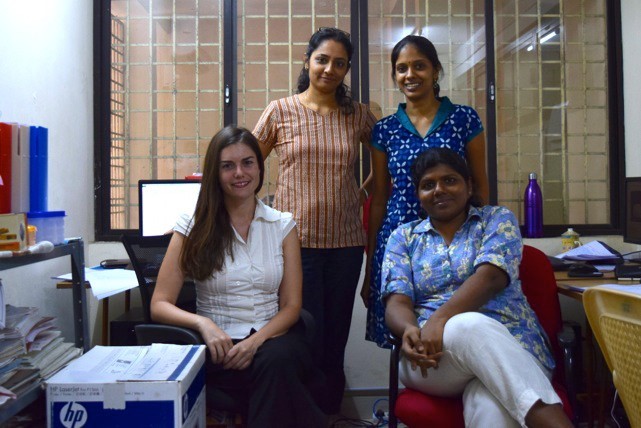
Photo above: my colleagues and me in the office at IIT Madras, Chennai.
All pictures are taken by me.